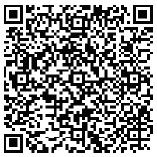Written by: Clara Chiu (Head of Partnership Development)
Earlier, on behalf of my fellowship, I invited a staff member from CEDAR to lead our fellowship Bible study. We explored God’s compassion for the poor, striving to emulate God. Both my fellow members and I benefited greatly from this experience. I want to share our insights with you in this issue of the CEDAR eNews.
We studied the parable of the ‘Sheep and the Goats’ from Matthew 25. Before delving into the specific passage, the staff member guided us to first examine the context in which Jesus used this parable. In Matthew 24, as Jesus was leaving the temple, he told his disciples: ‘Not one stone here will be left on another; every one will be thrown down.’ (24:2) Hearing Jesus speak of the temple’s destruction, the disciples associated this with the end times and asked Him about the signs of His coming and the end of the age (24:3). In response, Jesus spoke of various end-time signs and emphasised that no one would know the exact day of His return, instructing the disciples to remain vigilant and cautious. In Matthew 25, Jesus used three parables to teach the disciples how to prepare for His return, with the ‘Sheep and the Goats’ being one of them.
Hence, the central message of this parable is about ‘preparing for the Lord’s return’ rather than determining who ‘receives eternal life or death.’ Although the scripture mentions, ‘Then they will go away to eternal punishment, but the righteous to eternal life’ (25:46), it is crucial not to overlook the broader context. Jesus does not solely highlight that those lacking vigilance and self-discipline will face eternal punishment. In fact, across numerous passages in the Gospel of Matthew, the themes of ‘entering the kingdom’ and ‘eternal life’ complement each other, both signifying ‘being deemed worthy of citizenship in the kingdom.’ This is evident in verse 34, where those who are blessed are granted the inheritance of the kingdom.
In the parable, it is not the shepherd who separates the sheep and the goats, but rather the ‘King,’ symbolising the authority of the Lord in the last days. The King addresses the sheep, saying, ‘Come, you who are blessed by my Father; take your inheritance, the kingdom prepared for you since the creation of the world. For I was hungry and you gave me something to eat, I was thirsty and you gave me something to drink, I was a stranger and you invited me in, I needed clothes and you clothed me, I was sick and you looked after me, I was in prison and you came to visit me.’ (25:34-36). This is commendation, yet the sheep do not readily accept it, instead asking when they had helped the Lord (25:37-39).
The King responded, ‘Truly I tell you, whatever you did for one of the least of these brothers and sisters of mine, you did for me.’ (25:40) Following this, the Bible study group delved into a lengthy discussion about who the ‘least of these brothers and sisters’ refers to. Some believed that since the scripture uses the term ‘brothers and sisters,’ it must refer to poor Christians; others believed that such an exclusionary interpretation was unwarranted and that love should be extended to all the poor in the world. To better understand the scripture, we examined the meaning of the term ‘brothers and sisters’. Firstly, in the original Greek text, the word used is ἀδελφοί, which is a noun meaning ‘brothers’. NIV translates it as ‘brothers and sisters’ to give a broader sense to include both males and females. Then, we looked into the words with similar sense (brothers) in contemporary literature. In the ancient Near East, ‘brothers’ was a term used to express social status, referring broadly to all poor people. In some ancient Greek literature, ‘brothers’ was also used to refer to those who occupied low positions in society, including the poor, the disabled, orphans, widows, and so on. In Babylonian and Egyptian literature, ‘brothers’ was similarly used to express those who were socially disadvantaged. In ancient Roman literature, brothers typically referred to members of the same family, but there were also instances where the term was used to denote those in the ‘lower’ strata of society. In his work On Duties, Roman writer Cicero referred to the poor as the ‘least brothers.’
Thus, we concluded that in the Gospel of Matthew, as an ancient Near Eastern document, the phrase ‘the least of these brothers and sisters’ does not solely refer to poor Christians but rather to all impoverished individuals. Therefore, when the King speaks to the sheep, he is actually saying that helping ‘any poor person’ is equivalent to helping the King.
Next was the dialogue between the King and the goats, wherein the situation turned stark. Contrary to his response to the sheep, the King did not praise the goats; instead, he reproached them, and the goats vigorously denied it (Matthew 25:41-44). It seemed as if the goats were implying that they would have assisted if they had recognised the King’s need. Their issue lay in their failure to comprehend that the King identified himself with the plight of the poor. Consequently, when they neglected to aid the poor, the King perceived it as neglecting to aid himself.
Through this Bible study, what deeply impacted the group members was not just the expectation that believers should help the poor (which is widely known among most believers) but rather the sense of connection that the King (God) has with the poor: when the poor are not helped, he feels helpless himself; when the poor are helped, he feels as though he himself is being helped. This emotional connection is akin to what people call ‘empathy’ today.
We realised that striving to ‘be like God’ is not an unattainable goal. Consider a very thrifty mother; if her son is also careful with money, people will say he is just like her. Similarly, since God possesses abundant empathy and can feel the feelings of the poor, when we empathise with the poor, are not we becoming like Him?
The Bible study meeting did not stop with an examination of the scripture. We also read a story about a human trafficking survivor who received help from CEDAR. We closely followed her journey of being trafficked, exploited, rescued, and healed, immersing ourselves in her situation. We shared feelings of disappointment, pain, grievance, relief (at receiving help), warmth, and happiness. Finally, the staff member leading the study said to everyone: ‘It is not difficult to emulate the Lord. When we share the same feelings as the poor, that is the moment we are like God.’
The Bible study meeting did not stop with an examination of the scripture. We also read a story about a human trafficking survivor who received help from CEDAR. We closely followed her journey of being trafficked, exploited, rescued, and healed, immersing ourselves in her situation. We shared feelings of disappointment, pain, grievance, relief (at receiving help), warmth, and happiness. Finally, the staff member leading the study said to everyone:
It is not difficult to emulate the Lord. When we share the same feelings as the poor, that is the moment we are like God.
As a core committee member of the fellowship, I greatly value the presence of the CEDAR colleague who led the meeting. Firstly, the content of the meeting broadened the spiritual perspective of the members, providing an additional angle to understand the relationship between faith and the poor. Secondly, having an ‘outsider’ lead the Bible study made the members especially attentive. The dedication of the CEDAR colleague also benefited the spiritual growth of the members.
Readers might think I am biased, but having personally benefited, I hope readers will consider inviting CEDAR to their church for meetings. Through sermons, Bible studies, talks, and simulation activities, the congregation can gain a deeper understanding of the poor and Integral Mission. This is an important aspect of CEDAR’s work locally.
Additionally, we invite you to support us through prayer as we share the mission of caring for the poor and to consider donating to support our local poverty education efforts. We hope that more people in the Lord’s kingdom will participate in the holistic mission.
DONATION METHOD
(Please specify: Education)
Cheque
Please make it payable to CEDAR FUND
Direct Deposit
HSBC: 004-600-385678-001
BEA: 015-185-68-00931-7SSA
BOC: 012-581-2-020114-7
DBS: 016-478-001364162
Faster Payment System
FPS ID: 3354016 or scan the below code in the online banking
After donation, please send a completed Donation Form, enclosing with cheque, bank-in slip or screenshot of successful payment along with your name, contact phone number and mailing address to us via mail, email or WhatsApp.
Address: CEDAR Fund, G.P.O. Box 3212, Hong Kong
Email: sharing@cedarfund.org
WhatsApp (for donation matters only): 5160 7549
- CEDAR is an approved charitable institution and trust of a public character under section 88 of the Inland Revenue Ordinance. Please visit Inland Revenue Department website for details.
- CEDAR Fund will issue a receipt for a donation of HK$100 or above for tax deduction. For a donation of less than HK$100, please get in touch with us to issue a receipt.
- Please DO NOT fax any donation information.
If the donation amount exceeds the expenses of local poverty education in a fiscal year, we will transfer the excess amount to CEDAR’s development work to help poor communities.



